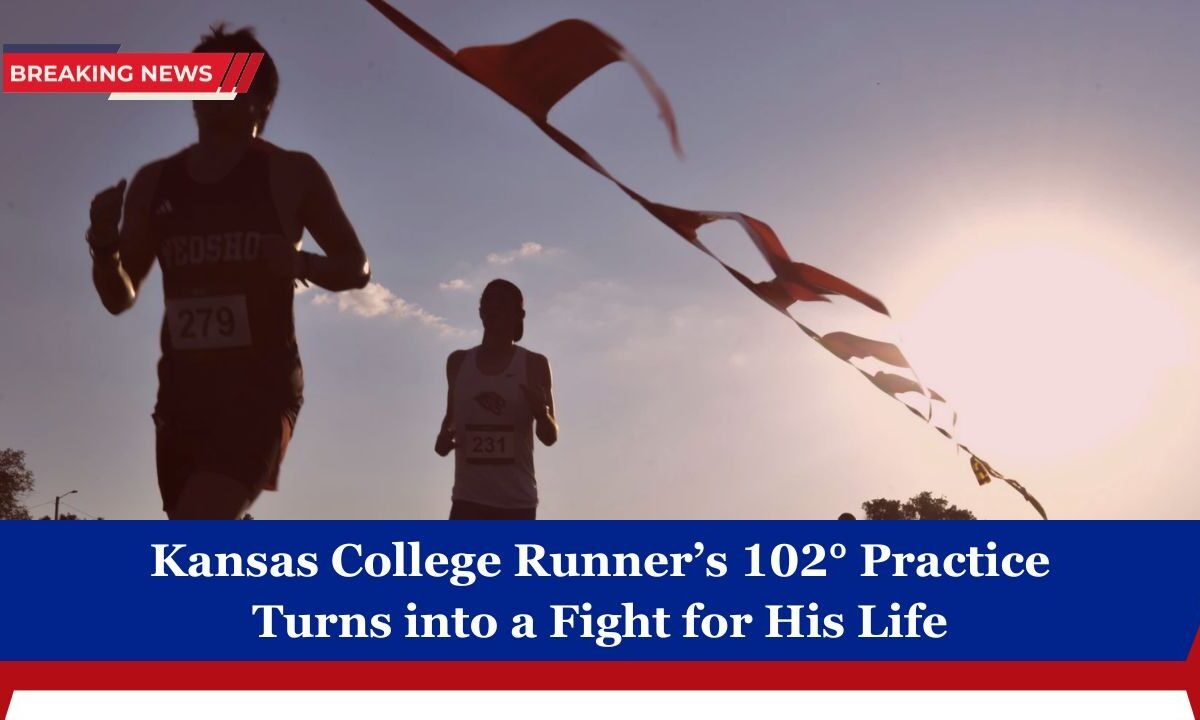What began as an ordinary cross-country training session for 19-year-old Delia Montes, a freshman at Dodge City Community College (DCCC), turned into a life-threatening emergency.
On August 7, 2025, Delia and her teammates went out for practice under scorching 102°F temperatures, with a heat index reaching 105°F—the hottest day of the Kansas summer.
Just hours later, emergency responders were called when Delia failed to return. She was eventually found unconscious in a cornfield, suffering from exertional heat stroke.
By the time she was airlifted to a nearby hospital, doctors said she was “on the verge of death.” Delia spent three weeks in intensive care, fighting for her life.
Key Details of the Incident
| Information | Details |
|---|---|
| Name | Delia Montes |
| Age | 19 years old |
| College | Dodge City Community College |
| Incident Date | August 7, 2025 |
| Practice Time | Started at 1:30 p.m. |
| Temperature | 102°F (Heat index 105°F) |
| Location | Cornfield west of DCCC campus |
| Condition | Exertional heat stroke |
| Hospital Stay | 3 weeks in intensive care |
| Status | Recovering |
What Went Wrong
The practice took place during the hottest part of the day, despite a heat advisory warning to limit outdoor activities.
Athletes were reportedly instructed to complete a long-distance run through an open, unshaded area. By the time Delia was located, she had been missing for over two and a half hours in extreme heat.
Experts say this was a textbook case of exertional heat stroke—a condition where intense physical activity in hot weather overwhelms the body’s ability to regulate temperature.
When the body’s core temperature rises above 104°F, organs begin to fail, and rapid medical intervention is critical.
Delia’s collapse raised questions about whether proper heat-safety protocols were followed during training. Former athletes and trainers have since claimed that DCCC’s cross-country program ignored repeated warnings about dangerous conditions, with athletes often pushed to run in triple-digit temperatures.
Community Support and Investigation
The Dodge City community rallied behind Delia and her family, organizing fundraisers and community runs to support her recovery. A GoFundMe campaign surpassed $10,000, showing the city’s collective compassion.
However, the incident sparked widespread outrage and calls for accountability. Local authorities and the college administration reviewed the athletic department’s training policies, with many urging the implementation of strict heat-index monitoring systems before practices.
Lessons for Collegiate Athletics
This tragedy has become a wake-up call for colleges nationwide about athlete safety in extreme heat. Experts emphasize that schools must:
- Avoid practices between 12 p.m. and 5 p.m. during high-heat advisories.
- Use Wet Bulb Globe Temperature (WBGT) devices to measure true heat stress.
- Provide adequate hydration, rest breaks, and shaded recovery zones.
- Ensure medical staff and emergency cooling equipment are available during training.
Running in 102°F heat without proper precautions can be fatal, even for well-conditioned athletes.
The near-fatal collapse of Delia Montes during a 102° practice highlights the urgent need for accountability and reform in college athletics. Her fight for life is a stark reminder that no training session is worth risking a student-athlete’s health.
As she continues her recovery, her story stands as both a warning and a call for lasting change—ensuring no other athlete endures such preventable suffering.




